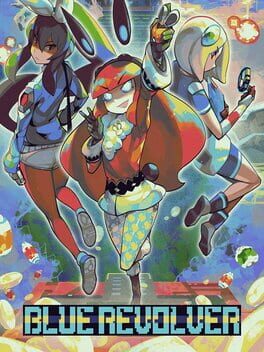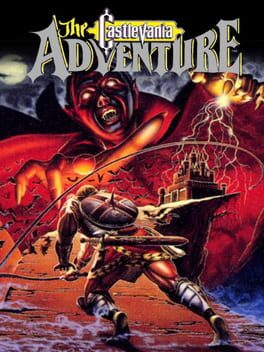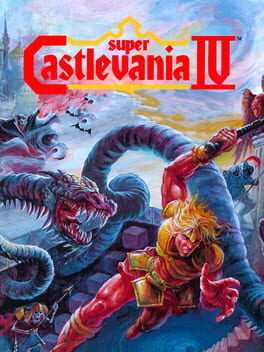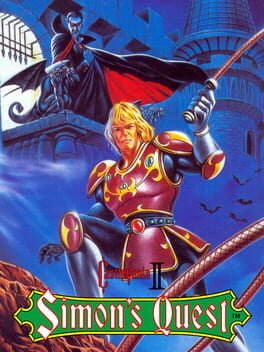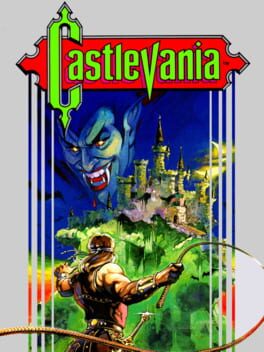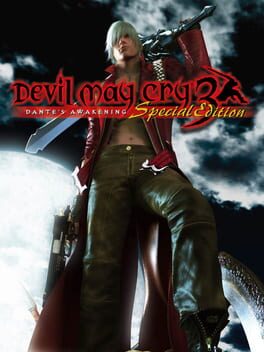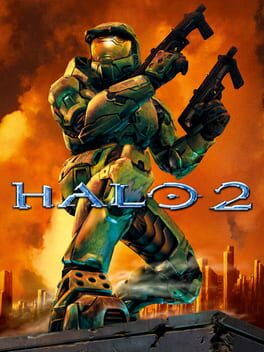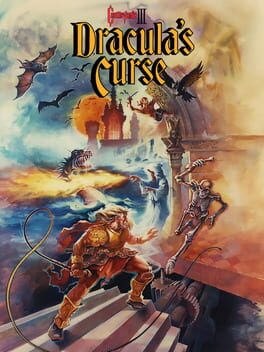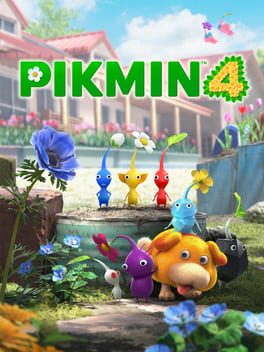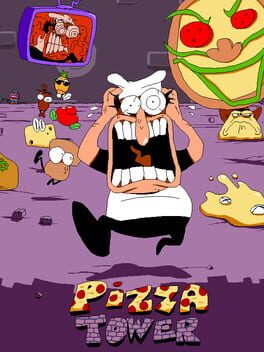Gerborious
2016
So, I'm pretty well clueless on what makes a good shmup tick, but I do want to highlight the brilliance of locking away continues for a while. It forced me to fully learn the game and it's mechanics to where, on my first run with them unlocked, I had reached the final boss before needing to use one. (Yes it was on the easiest difficulty, no I don't care it felt good)
That level of understanding my place, where I was so tantalizingly close to beating the game on it's own terms immediately forced the game's hooks into my psyche.
Good time.
That level of understanding my place, where I was so tantalizingly close to beating the game on it's own terms immediately forced the game's hooks into my psyche.
Good time.
In concept, Castlevania: The Adventure is really remarkable. This early gameboy adaptation explores mechanics that continue to be taken for granted in the console releases, and has the most interesting level design in the series up to that point. One problem though, the game is broken.
I really love the whip concept here. I've always felt that the whip powering up in Castlevania seemed like an afterthought. You're never left with a depowered whip for more than a few seconds, and since there is no way to lose it, why shouldn't the player simply spawn with the full power whip? The Adventure answers this, by making the whip's individual stages each feel remarkably different, and making losing your power an active threat.
The stages are also really cool. Each comes with a full suite of elements that make them feel distinct. A specific highlight is stage 3, with it's focus on crushing spike traps.
Sadly, all of these interesting ideas are functionally worthless in the face of The Adventure's performance. The game is in near constant slowdown. This leads to inputs being constantly dropped by the game. With The Adventure having the slowest Belmont so far, this directly caused me to die many times. It's a shame, really.
I really love the whip concept here. I've always felt that the whip powering up in Castlevania seemed like an afterthought. You're never left with a depowered whip for more than a few seconds, and since there is no way to lose it, why shouldn't the player simply spawn with the full power whip? The Adventure answers this, by making the whip's individual stages each feel remarkably different, and making losing your power an active threat.
The stages are also really cool. Each comes with a full suite of elements that make them feel distinct. A specific highlight is stage 3, with it's focus on crushing spike traps.
Sadly, all of these interesting ideas are functionally worthless in the face of The Adventure's performance. The game is in near constant slowdown. This leads to inputs being constantly dropped by the game. With The Adventure having the slowest Belmont so far, this directly caused me to die many times. It's a shame, really.
1991
I'm gonna be honest and say that I feel really biased on this one. I was just constantly frustrated while playing. I don't know exactly why? It may have just been a long week.
In terms of design, Super Castlevania 4 is probably my least favorite of the main platformers. The whip is absurdly strong, and the massive sprites mean that the pace has been slowed down significantly. I found it to be a bummer honestly.
In terms of design, Super Castlevania 4 is probably my least favorite of the main platformers. The whip is absurdly strong, and the massive sprites mean that the pace has been slowed down significantly. I found it to be a bummer honestly.
If I'm being honest, Simon's Quest isn't that bad. There are really only two major moments where I had to look up a guide, which was surprising. Unsurprisingly, both moments were caused due to the game's poor translation. There was no way for me to know that the holy water broke certain blocks, or that crouching activated the magic crystals. Once I know that those were two elements of the game, I was able to intuit when and where to use them, which is proof to me that Castlevania II isn't as bad as it's made out to be.
I honestly wasn't loving the middle chunk of this game. The tanker was fun, but for the majority of the plant I wasn't really feeling it. Once you hit the final segment of the game though?
Oh man.
Oooooooohhhhh man dude, easily one of the best final segments ever. I get it now.
(Played via the HD version on PS3)
Oh man.
Oooooooohhhhh man dude, easily one of the best final segments ever. I get it now.
(Played via the HD version on PS3)
1986
Castlevania is a stone cold classic. While simple in comparison to it's successors, this first entry has come out fully formed in the series' main appeal.
The game peaks in stage 6, especially in the hallway before the Death fight. The combination of medusa heads and axe knights creates an incredibly dynamic encounter that was always engaging to fight through.
The game peaks in stage 6, especially in the hallway before the Death fight. The combination of medusa heads and axe knights creates an incredibly dynamic encounter that was always engaging to fight through.
A couple of months ago, I went on the first vacation I've been on in a few years. I've been too busy with work or school to take the time off and travel. Since I was itching to play DMC3 on it's higher difficulties for the first time, I downloaded the HD collection on my laptop and chewed through a complete playthough over the week.
So much of this game's qualities were heightened over this playthrough. The arsenal still stands as one of the greatest of all time in variety and depth. The enemies are extremely unique, creating a good balance between combo fodder and more specific threats. The levels often put Dante in strange and uncomfortable positions during combat. Forcing the player to consider methods of play that may not seem natural.
I came home, playthrough finished, ready to dive into Vergil, bloody palace, rank hunting, difficulty scaling, to really take this game for everything it is on my PC.
The DMC HD collection doesn't support cloud saves.
I'm not even mad.
So much of this game's qualities were heightened over this playthrough. The arsenal still stands as one of the greatest of all time in variety and depth. The enemies are extremely unique, creating a good balance between combo fodder and more specific threats. The levels often put Dante in strange and uncomfortable positions during combat. Forcing the player to consider methods of play that may not seem natural.
I came home, playthrough finished, ready to dive into Vergil, bloody palace, rank hunting, difficulty scaling, to really take this game for everything it is on my PC.
The DMC HD collection doesn't support cloud saves.
I'm not even mad.
2004
I was repeatedly told that playing through this on heroic would be a mistake. "No worries, I played Halo: Combat Evolved on heroic! I'll be fine," I said, unaware of the cosmic horrors that would await me inside. However, despite my hardship I have navigated through the valley of death, and I have achieved inner clarity.
Playing this on heroic was a mistake.
(Played via anniversary on the Master Chief Collection)
Playing this on heroic was a mistake.
(Played via anniversary on the Master Chief Collection)
2023
From pause combos in Devil May Cry, to the parry sequences in Sekiro, rhythm has always been an integral part of action games. What hides this fact is that while the rhythm has always been there, it's typically unfocused. Bayonetta may be dancing to one beat, but the enemies are marching to one of their own, and the ost is going to an entirely different bpm. Action games have always been rhythm games, in the same way that the members of an orchestra all tuning their instruments disparately is still music.
This is what makes Hi-Fi Rush so brilliant. It realizes that the only missing piece keeping these games from being recognized as musical is a consistent beat. The player, enemies, music, stages, and cutscenes, everything is in sync.
It helps that the game is killer too, Chai's combos are slick and weave well into each other. The game has a strong set of enemies, and the partner mechanic is fun to play with. The animation is great, the levels are fun, and it has nearly all the features I look for in one of these games. (As far as I can tell, difficulty modes don't change enemy formations, that's pretty much my only disappointment)
It's just really rad ok? Go play it.
This is what makes Hi-Fi Rush so brilliant. It realizes that the only missing piece keeping these games from being recognized as musical is a consistent beat. The player, enemies, music, stages, and cutscenes, everything is in sync.
It helps that the game is killer too, Chai's combos are slick and weave well into each other. The game has a strong set of enemies, and the partner mechanic is fun to play with. The animation is great, the levels are fun, and it has nearly all the features I look for in one of these games. (As far as I can tell, difficulty modes don't change enemy formations, that's pretty much my only disappointment)
It's just really rad ok? Go play it.
It's real good. Dracula's Curse iterates upon the original's foundation, creating a strong set of stages that I ended up enjoying more.
I think the multiple routes and characters are a neat concept, though I would argue that Dracula's Curse is too long. A playthrough feels like it lasts a good deal longer than the original, so I feel less inclined to go for more efficient runs despite the extra content.
I think the multiple routes and characters are a neat concept, though I would argue that Dracula's Curse is too long. A playthrough feels like it lasts a good deal longer than the original, so I feel less inclined to go for more efficient runs despite the extra content.
2015
Another day, another review talking about how this is their first Yakuza game. Guess what? It's really great! I want to talk about it some more, so hopefully this gets more original from here on out.
Yakuza 0's greatest asset is its story. The acting is phenomenal, and the drama can be extremely compelling. This is especially true in the back half of the game, when events really begin to kick into motion. However, this came with the unfortunate effect that past say, chapter 10 or so, I just stopped doing any side content. At a certain point, the substories became too repetitive, and the minigames lost their luster. This was my biggest disappointment from the game. So much of Yakuza's publicity is surrounding these side activities, and while I don't regret spending the time I did screwing around in the early game, I don't have any desire to go back and see what I missed.
In many ways, this has to do with how I feel about the game's other main aspect, its combat. It's fine. I guess. I played on hard, but the game never got very mechanically challenging. Most of the time the combat is fun because of spectacle, this is especially true of boss fights. I'm honestly having a hard time determining why I feel so middling on the combat. In theory everything is there, so what is the missing link? It may have something to do with the enemy design. Enemies are split between being mindless pushovers, or having absurd defensive capabilities. I'm left wondering if some of the bosses had literally infinite super armor, or my damage output was pitifully low from being on hard mode.
Finally, I want to end on something I really enjoyed about Yakuza 0. I feel like I've been primarily negative so far, but I overall really liked the game, so I want to reflect that. What I loved the most about Yakuza 0 is its commitment. In every possible aspect of the game, down to the smallest minigame, it goes the extra mile. It treats every aspect with the same level of engagement, nothing truly feels like leftover side content. What a great time overall, maybe in the end it was just too long for its own good? Eh, who knows.
Yakuza 0's greatest asset is its story. The acting is phenomenal, and the drama can be extremely compelling. This is especially true in the back half of the game, when events really begin to kick into motion. However, this came with the unfortunate effect that past say, chapter 10 or so, I just stopped doing any side content. At a certain point, the substories became too repetitive, and the minigames lost their luster. This was my biggest disappointment from the game. So much of Yakuza's publicity is surrounding these side activities, and while I don't regret spending the time I did screwing around in the early game, I don't have any desire to go back and see what I missed.
In many ways, this has to do with how I feel about the game's other main aspect, its combat. It's fine. I guess. I played on hard, but the game never got very mechanically challenging. Most of the time the combat is fun because of spectacle, this is especially true of boss fights. I'm honestly having a hard time determining why I feel so middling on the combat. In theory everything is there, so what is the missing link? It may have something to do with the enemy design. Enemies are split between being mindless pushovers, or having absurd defensive capabilities. I'm left wondering if some of the bosses had literally infinite super armor, or my damage output was pitifully low from being on hard mode.
Finally, I want to end on something I really enjoyed about Yakuza 0. I feel like I've been primarily negative so far, but I overall really liked the game, so I want to reflect that. What I loved the most about Yakuza 0 is its commitment. In every possible aspect of the game, down to the smallest minigame, it goes the extra mile. It treats every aspect with the same level of engagement, nothing truly feels like leftover side content. What a great time overall, maybe in the end it was just too long for its own good? Eh, who knows.
2023
Pikmin 4 has successfully achieved mass appeal. It's the most successful Pikmin game by far, and I'm glad that this series is finally getting the recognition it deserves! It just isn't the series I fell in love with anymore, so to speak.
Sorry for being dramatic, but I'm just being honest. Even though I did enjoy my time with Pikmin 4, almost none of it has stuck with me post credits. We've gone full 3D collectathon, a long 30 hour string of small dopamine hits and fun references. Once that dopamine made its way out of my system, I haven't given it much thought.
Sorry for being dramatic, but I'm just being honest. Even though I did enjoy my time with Pikmin 4, almost none of it has stuck with me post credits. We've gone full 3D collectathon, a long 30 hour string of small dopamine hits and fun references. Once that dopamine made its way out of my system, I haven't given it much thought.
2023
Pizza Tower absolutely rules. It's almost too much at times; the visceral speeds that you can reach make the levels impossible to read.
By holding down one button, you break out into a run. Run for long enough, and you begin to charge, defeating any enemies in your way. Charge for long enough, and your speed begins to increase further and further.
Keep the momentum going by diving off a ledge to reach the ground faster. Not fast enough? Cancel the dive into a ground slam that can maintain your speed if you land on a slope. Scale walls by jumping onto them or starting from a slope, or charge up a super jump to convert your speed upwards. Guess what, you can cancel that into a dash too!
Your movement abilities are absurd, with many aspects to learn and master. It's no wonder that the most exciting parts of Pizza Tower are the ends of it's stages. After combing the level for secrets and getting acquainted to it's unique mechanics, you have one goal. Get out as soon as possible.
Your heart rate rises, the music starts kicking in. Enemies start spawning in waves but it doesn't matter, you're too focused on making sure you don't run into a wall or pit to care.
Those levels by the way? Great as well. The best feature unique mechanics that encourage said forward momentum. There are a few gimmicks that cause a little bit of stopping and starting, but if anything the slightly slower pace can be a relief.
The game absolutely knows how absurd the movement is too. Beyond a first playthrough, even beyond collecting all of the secrets, the game challenges you to push your skill even further.
I'm super happy this turned out the way it did. I'm going to be playing it for a good while longer.
By holding down one button, you break out into a run. Run for long enough, and you begin to charge, defeating any enemies in your way. Charge for long enough, and your speed begins to increase further and further.
Keep the momentum going by diving off a ledge to reach the ground faster. Not fast enough? Cancel the dive into a ground slam that can maintain your speed if you land on a slope. Scale walls by jumping onto them or starting from a slope, or charge up a super jump to convert your speed upwards. Guess what, you can cancel that into a dash too!
Your movement abilities are absurd, with many aspects to learn and master. It's no wonder that the most exciting parts of Pizza Tower are the ends of it's stages. After combing the level for secrets and getting acquainted to it's unique mechanics, you have one goal. Get out as soon as possible.
Your heart rate rises, the music starts kicking in. Enemies start spawning in waves but it doesn't matter, you're too focused on making sure you don't run into a wall or pit to care.
Those levels by the way? Great as well. The best feature unique mechanics that encourage said forward momentum. There are a few gimmicks that cause a little bit of stopping and starting, but if anything the slightly slower pace can be a relief.
The game absolutely knows how absurd the movement is too. Beyond a first playthrough, even beyond collecting all of the secrets, the game challenges you to push your skill even further.
I'm super happy this turned out the way it did. I'm going to be playing it for a good while longer.
2022
Signalis is immaculate in it's presentation. I was so floored by the first room in the demo during steam next fest, that I immediately closed the game so I could save the entire game for it's full release. Hallways are dripping with atmosphere, the lonely dark corners of this game's locations begging for exploration.
It's a surprisingly long game too, not in terms of length, but in distinct chunks of content. I assumed that one segment was the final one, but it was followed up with another full stage. Well worth the time!
It's a surprisingly long game too, not in terms of length, but in distinct chunks of content. I assumed that one segment was the final one, but it was followed up with another full stage. Well worth the time!
